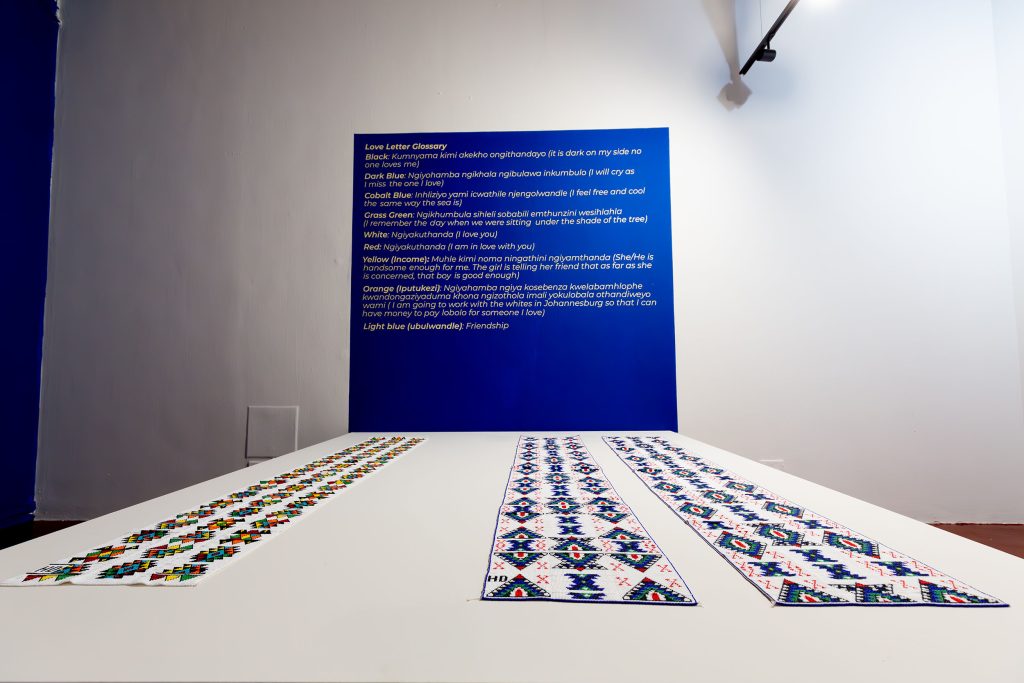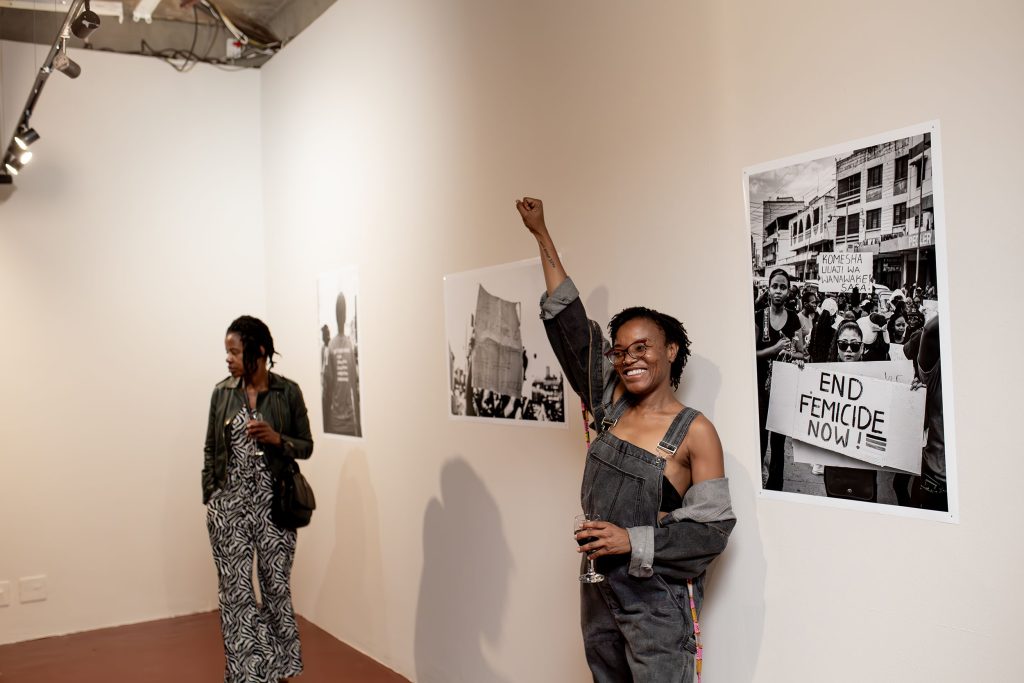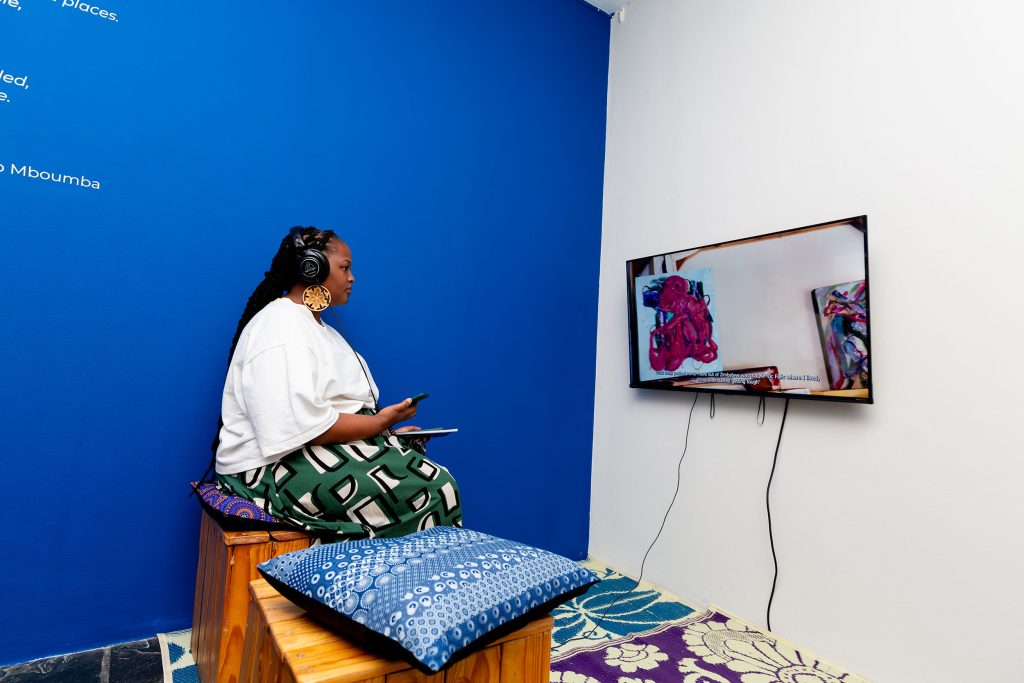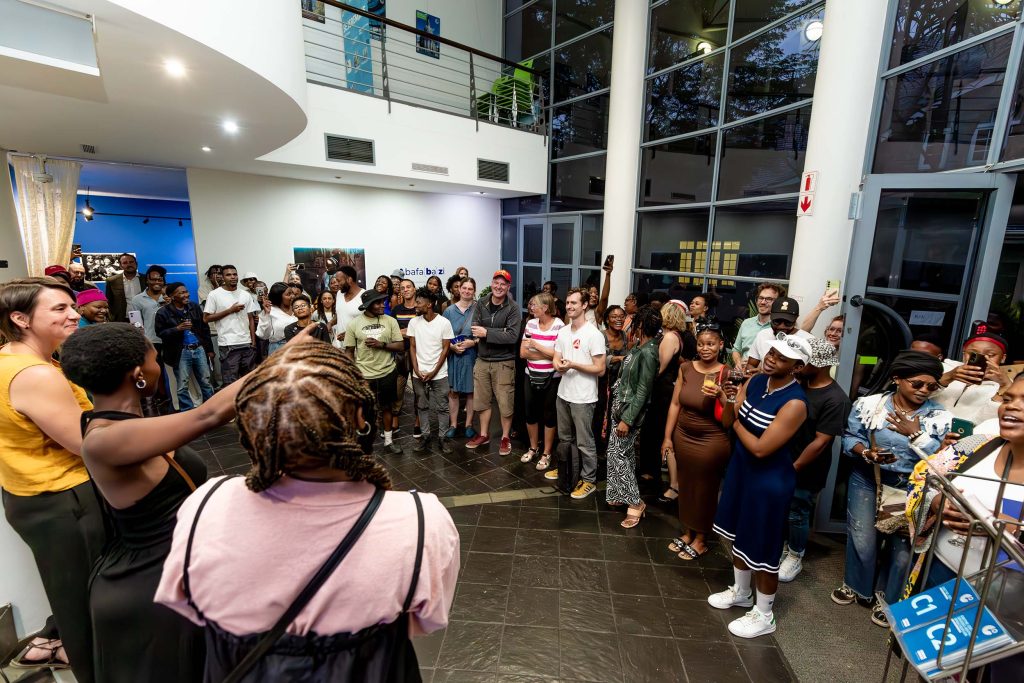For those attuned to the hum of Johannesburg’s cultural pulse, the Goethe-Institut is a beacon of radical thought and artistic inquiry. Currently hosting the poignant Abafa(ba)zi exhibition—running until February 28, 2025—this initiative is more than a display of works; it is a reclamation of space, stories, and identities. Centered on the narratives of African and diasporic women, Abafa(ba)zi interrogates the intersections of cultural heritage, representation, and agency. As part of the exhibition, a thoughtfully curated framework programme invites the public to engage in dialogue, creation, and reflection.
The programme accompanying the exhibition is as dynamic as it is thought-provoking, packed with panel discussions, workshops, and walkabouts designed to engage visitors of all ages and interests. By intertwining creativity, storytelling, and cultural heritage, Abafa(ba)zi fosters introspection while encouraging participants to become part of the broader dialogue. Each event is an opportunity to connect, reflect, and contribute, making this exhibition as much about participation as it is about representation.

The upcoming programme:
1. Panel Discussion: Collecting Narratives – The Perspective and Agency of Black Women
Saturday, 7th December 2024, 11am, Goethe-Institut Johannesburg
The programme opens with a panel discussion that explores storytelling as the lifeblood of the Abafa(ba)zi exhibition. Titled; Collecting Narratives – The Perspective and Agency of Black Women, this dialogue delves into the ways African and diasporic narratives are preserved and shared, often through the symbolic vessel of cultural artefacts. Indigenous Knowledge Systems (IKS) will be a focal point, offering frameworks for deepening our understanding of these stories. Beyond the archive, the discussion addresses the politics of representation: who gets to tell these stories, how they are framed, and what this means for cultural memory.
Moderator: Lweendo Hamukoma
Panelists:
-Mbali Kgame: Writer and scholar exploring the complexities of Black existence in post-apartheid South Africa.
– Vuyiswa Xekatwane: Writer, cultural worker, and isangoma whose work centers African spirituality and heritage.
– Melissa Goba: Artist and curator whose practice interrogates memory and abstraction within African contexts.
The discussion will be followed by music from DJ Niksta and a light brunch.
RSVP at hoaf@goethe.de (Subject: *Abafabazi panel*).
2. Exhibition Walkabout with Curator Thina Miya
Friday, 17th January 2025, 2pm, Goethe-Institut Johannesburg
Friday, 14th February 2025, 2pm, Goethe-Institut Johannesburg
Embark on an intimate journey through *Abafa(ba)zi* with curator Thina Miya. These walkabouts offer a behind-the-scenes glimpse into the curatorial decisions, the featured artists, and the broader narrative threads of the exhibition. Tea will be served as part of this reflective experience.
3. Beading Workshop for Adults and Children
Saturday, 1st February 2025, 2–5pm (TBC), Goethe-Institut Johannesburg
In a family-friendly exploration of African craft traditions, the beading workshop bridges generations through creativity and storytelling. Participants will learn about the symbolic language of beadwork from Southern and West Africa, creating their own beaded pieces while reflecting on the ways this practice preserves identity and unity. Attendance is free, but RSVP is encouraged at hoaf@goethe.de (Subject: *Beading workshop*).
4. Women’s Storytelling Circle
Friday, 28th February 2025, 6pm (TBC), Goethe-Institut Johannesburg
To close the exhibition, Abafa(ba)zi will host an intimate storytelling circle for women, centered around healing and connection through shared narratives. A tea station, both symbolic and functional, serves as the heart of this gathering, embodying the tradition of storytelling as an act of resilience and cultural preservation. RSVP at hoaf@goethe.de (Subject: *Storytelling event*).
Through this framework programme, Abafa(ba)zi extends its themes of reclamation, agency, and storytelling beyond the gallery walls. Each event invites the public to not only witness but actively participate in conversations and practices that honor the stories of African women and their diasporic communities. This isn’t just an exhibition – it’s an evolving dialogue, a celebration of heritage, and an invitation to reimagine how stories shape the world we inhabit, it is not one to be missed.























































